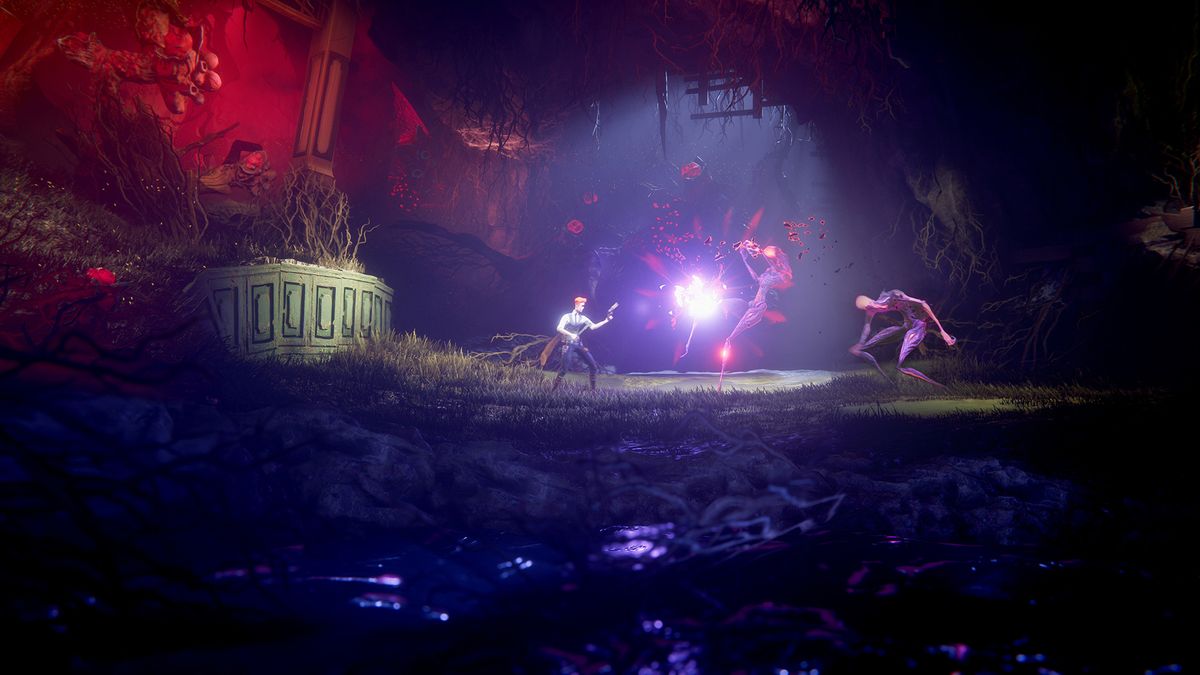12DOVE Verdict
The Last Case of Benedict Fox could be a great game, but it's let down by its own confused execution
Pros
- +
It looks lovely
- +
Loads of neat ideas
Cons
- -
Falls short on the basics
- -
Unintuitive progression causes confusion
Why you can trust 12DOVE
Just like the investigative mechanics that underpin the eponymous protagonist's dimension-hopping adventure, The Last Case of Benedict Fox is a bit of a conundrum. The surrealist detective drama-meets-Metroidvania looks gorgeous, and poses some interesting and genuinely unique ideas. But scratch beneath its flashy veneer, and you'll discover a game that lacks direction; one that struggles to nail the fundamentals of a genre that's been operating pretty smoothly for decades, and one that is seemingly overburdened by its own ambition.
My absent father is dead. I want to know why. I'm using his corpse as a means of traveling between mortal planes. And a smart-mouthed ghost lives inside my body. On paper it sounds amazing, and I'll be the first to admit I've fancied everything that Plot Twist and Rogue Games Inc have shown us before now. But in practice, The Last Case of Benedict Fox falls too short in too many areas to properly realize its potential.
Clued-up or clueless?
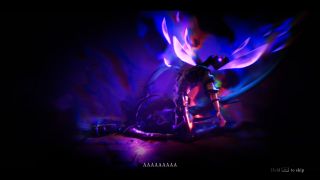
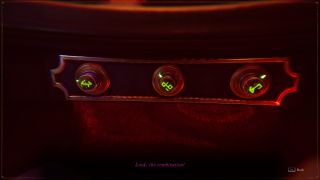
Release date: April 27, 2023
Platform(s): PC, Xbox Series X, Xbox One
Developer: Plot Twist
Publisher: Rogue Games Inc
Too often, that act of falling short is literal. When bounding around the Lovecraftian underworld that rolls out beneath reality – in a set-up akin to the likes of Hollow Knight – you'll run, jump, and haul yourself on and off platforms to reach new areas, and untangle whichever narrative threads you're currently chasing. Helped along by the ethereal spirit named the Companion who lives inside your body, the ledges Benedict is able to reach are identified by a glowing purple hue. At the same time, the spirit itself will shoot one of its magical octopus-like tentacles from your chest to point to the nearest accessible platform.
The problem is, this process is intermittent at best, and temperamental at worst. Too often the purple glow and pointing tentacle would appear, but I'd be unable to reach or grab the ledge in question. After unlocking the genre stalwart ability of double-jump, I likewise found it to be irritatingly random in its execution – sometimes helping me reach where I wanted to go, other times failing entirely, and indirectly slamming me into a pit of bubbling slime.
Admittedly, there may be underlying lore-specific reasons why platforming is so unpredictably obtuse in The Last Case of Benedict Fox that I missed, but that to me is more a reflection of the game's lack of direction and signposting than it is my inability to gel with its systems. I love the idea of flitting between the real world and Limbo, gathering clues in one space that directly affect the other, but too often I'd see one puzzle to its conclusion, and then be left thinking: where the hell do I go now? As someone who adores the works of FromSoftware, I'm partial to light-touch narrative, and I hardly see myself as someone who needs their hand held through tricky segments of video games. But when you're in the throes of a game whose central tenet is gathering information, being left with so little clues between its core Cases, Riddles and Affairs is beyond frustrating.
I mean, even the game's loading screen left me scratching my head. It depicts a blank cork board, like the ones that feature in detective TV shows, with all the strings and clues pinned alongside one another. While waiting for one level to load, though, I inadvertently moved my left analogue stick upwards, and discovered notes on my journey so far – nothing revelatory, just monotonous shorthand on what I'd learned about my father's death to this point, and what remained up in the air. It's such a weird design decision to not have the cork board centered on this information, and left me wondering why it was there at all, given it could easily be missed altogether.
Head scratcher
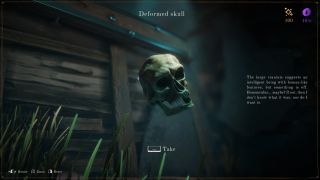
Combat in The Last Case of Benedict Fox is a mixed bag. With just a handful of enemy types – namely land and air-based demons stalking the shadows of Limbo – fights tend to see you hammering baddies with your blade in order to charge your flare gun, and then blasting whatever's left standing before you. You can dodge and parry with a shield provided by your Companion spirit, but with occasionally unresponsive inputs and limited attack animations, I found button-bashing and simply running away to be the safest ways to survive.
As you wade deeper into the game, ink gathered from enemies underground can be given to a tattoo artist in the real world in exchange for new supernatural abilities, identified by actual tattoos on Benedict's arms. Towards the end of my 12 or so hours with the game, these powers saw me able to execute wrestling moves on enemies, and pull them closer with Mortal Kombat-like precision. Area bosses in The Last Case of Benedict Fox are big and beautiful too – but they're few and far between, with my favorite larger-than-life face-off occurring inside the first 20 minutes, and my next most enjoyable scrap at the game's end.
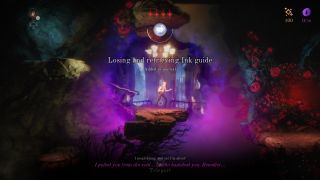
Away from battle, The Last Case of Benedict Fox's masterful puzzles are over and above its redeeming feature. In something that sort-of echoes the Zelda series' A Link Between Worlds or A Link to the Past, cracking some of the game's most complex quandaries involves multiple journeys between the real world and Limbo. But, without spoiling anything, this coming and going never feels like a chore, with each clue solved (and the quick shot of endorphins this provides) driving your desire to keep going. This is where The Last Case of Benedict Fox truly comes into its own, as it marries the to-and-fro exploration that underpins the enduring Metroidvania genre with the intrepid trial-and-error of old-school point-and-click adventures. There's even a bit of survival horror in there too, whereby examining key items up close, and discovering hidden compartments or decipherable codes, becomes a vital part of your process.
All of this, of course, is wrapped up in The Last Case of Benedict Fox's gorgeously vibrant and cartoonish art style. Its platforming and combat mechanics too often drove me up the wall – or, rather, slipping down it – but the saving grace among these frustrations was always how nice this world feels. It's a real shame, then, that the game's fundamentals struggle to match its vision, especially when games in this space have been nailing them down for the last 40 years. This crucial misstep alone is a mystery that Benedict Fox himself appears unable to solve.
Here are some of the best adventure games to get swept up in with right now
More info
| Genre | Adventure |

Joe Donnelly is a sports editor from Glasgow and former features editor at 12DOVE. A mental health advocate, Joe has written about video games and mental health for The Guardian, New Statesman, VICE, PC Gamer and many more, and believes the interactive nature of video games makes them uniquely placed to educate and inform. His book Checkpoint considers the complex intersections of video games and mental health, and was shortlisted for Scotland's National Book of the Year for non-fiction in 2021. As familiar with the streets of Los Santos as he is the west of Scotland, Joe can often be found living his best and worst lives in GTA Online and its PC role-playing scene.

Metaphor: ReFantazio wanted to fix the JRPG grinding problem, but Atlus went too far at one point and accidentally broke the whole combat system
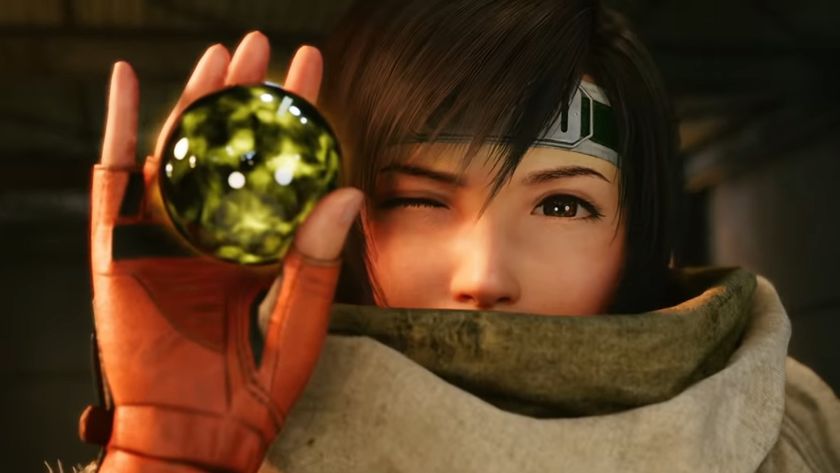
Final Fantasy 7 Remake and Rebirth battle director says combining everything he learned on Monster Hunter: World with Square Enix's technology and unique skills created a "chemical reaction"

"Minutes after Palworld released," Pocketpair was already getting game pitches from "some really big names" before it even set up its own publisher: "No one has money at the moment"
